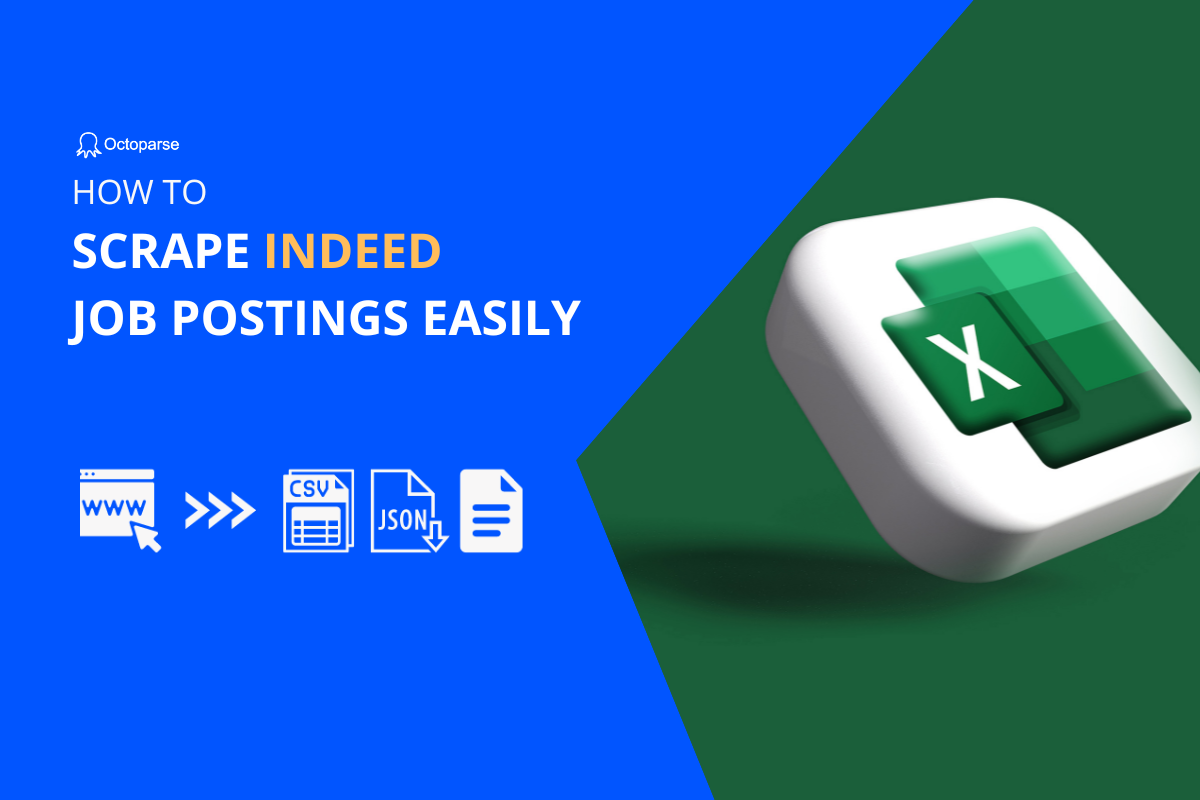
Understanding the Landscape of Job Market Intelligence
In the rapidly evolving digital ecosystem, job market data represents a critical strategic asset for professionals, researchers, and organizations seeking competitive insights. Indeed, as a global job posting platform, hosts millions of job listings that contain invaluable information about employment trends, salary ranges, and industry dynamics.
Web scraping job platforms like Indeed isn‘t just a technical exercise—it‘s a sophisticated method of extracting actionable intelligence that can transform how businesses and individuals understand labor markets. This comprehensive guide will walk you through the intricate world of Indeed job posting scraping, providing you with advanced techniques, ethical considerations, and practical implementations.
The Strategic Importance of Job Market Data Extraction
Why invest time and resources in scraping job postings? The answer lies in the transformative potential of data-driven insights. By systematically extracting and analyzing job listings, professionals can:
- Identify emerging industry trends
- Understand salary benchmarks
- Track company hiring patterns
- Develop targeted career strategies
- Support academic and market research
Technical Foundations of Web Scraping
Before diving into specific Indeed scraping techniques, it‘s crucial to understand the fundamental technologies and principles underlying web data extraction. Web scraping is a complex interplay of HTTP protocols, HTML parsing, and intelligent data retrieval strategies.
Core Technologies in Web Scraping
Modern web scraping relies on a sophisticated stack of technologies:
- HTTP Request Libraries (requests, urllib)
- HTML Parsing Tools (BeautifulSoup, lxml)
- Browser Automation (Selenium, Puppeteer)
- Data Manipulation Frameworks (Pandas)
Each technology serves a specific purpose in the data extraction pipeline, enabling developers to navigate the intricate landscape of dynamic web content.
Comprehensive Scraping Methodologies
Method 1: Python-Powered Extraction Techniques
Python emerges as the premier language for web scraping, offering robust libraries and flexible implementation strategies. Our advanced scraping script demonstrates a professional-grade approach to extracting job posting data.
import requests
from bs4 import BeautifulSoup
import pandas as pd
from typing import List, Dict
class IndeedScraper:
def __init__(self, query: str, location: str):
self.base_url = f"https://www.indeed.com/jobs?q={query}&l={location}"
self.headers = {
‘User-Agent‘: ‘Mozilla/5.0 Professional Research Bot‘
}
def extract_job_listings(self) -> List[Dict]:
try:
response = requests.get(self.base_url, headers=self.headers)
soup = BeautifulSoup(response.text, ‘html.parser‘)
job_listings = soup.find_all(‘div‘, class_=‘job_seen_beacon‘)
return [{
‘title‘: job.find(‘h2‘, class_=‘jobTitle‘).text.strip(),
‘company‘: job.find(‘span‘, class_=‘companyName‘).text.strip(),
‘location‘: job.find(‘div‘, class_=‘companyLocation‘).text.strip(),
‘salary‘: self._extract_salary(job)
} for job in job_listings]
except Exception as error:
print(f"Extraction Error: {error}")
return []
def _extract_salary(self, job_element):
# Advanced salary extraction logic
salary_element = job_element.find(‘div‘, class_=‘metadata salary-snippet-container‘)
return salary_element.text.strip() if salary_element else "Not Disclosed"Advanced Selenium Scraping Strategy
Selenium provides more sophisticated scraping capabilities, especially for JavaScript-rendered content:
from selenium import webdriver
from selenium.webdriver.common.by import By
from selenium.webdriver.support.ui import WebDriverWait
from selenium.webdriver.support import expected_conditions as EC
class SeleniumIndeedScraper:
def __init__(self, webdriver_path):
self.driver = webdriver.Chrome(executable_path=webdriver_path)
def scrape_dynamic_content(self, query, location):
self.driver.get(f"https://www.indeed.com/jobs?q={query}&l={location}")
# Wait for dynamic content
job_elements = WebDriverWait(self.driver, 10).until(
EC.presence_of_all_elements_located((By.CLASS_NAME, ‘job_seen_beacon‘))
)
# Extract complex job details
jobs = [self._parse_job_element(element) for element in job_elements]
return jobs
def _parse_job_element(self, element):
# Sophisticated parsing logic
return {
‘title‘: element.find_element(By.CSS_SELECTOR, ‘h2.jobTitle‘).text,
‘company‘: element.find_element(By.CLASS_NAME, ‘companyName‘).text,
# Additional parsing logic
}Ethical Considerations in Web Scraping
Web scraping operates in a complex ethical and legal landscape. Responsible data extraction requires:
- Respecting Website Terms of Service
- Implementing Reasonable Request Rates
- Avoiding Personal Information Extraction
- Providing Potential Attribution
- Understanding Legal Boundaries
Proxy and Request Management
To maintain ethical scraping practices, implement intelligent request management:
import time
import random
def controlled_request(url, proxy=None):
# Intelligent request throttling
time.sleep(random.uniform(1, 3))
# Implement proxy rotation
# Add user-agent randomizationPerformance Optimization Strategies
Efficient web scraping demands sophisticated performance optimization techniques:
- Implement concurrent request handling
- Use asynchronous programming models
- Develop intelligent caching mechanisms
- Monitor and log extraction processes
- Create resilient error handling frameworks
Future of Job Market Data Extraction
The landscape of web scraping continues to evolve, driven by:
- Machine learning algorithms
- Advanced natural language processing
- Improved browser automation technologies
- Enhanced data privacy regulations
Conclusion: Empowering Data-Driven Insights
Web scraping Indeed job postings represents a powerful approach to understanding complex labor market dynamics. By combining technical expertise, ethical practices, and sophisticated tools, professionals can unlock unprecedented insights into employment trends.
Your journey into job market intelligence starts with mastering these advanced extraction techniques. Remember, successful web scraping is an art form that balances technical skill, strategic thinking, and responsible data practices.
Next Steps for Aspiring Data Professionals
- Master Python web scraping libraries
- Understand legal and ethical frameworks
- Develop robust error handling techniques
- Stay updated with emerging technologies
- Practice continuous learning and adaptation










